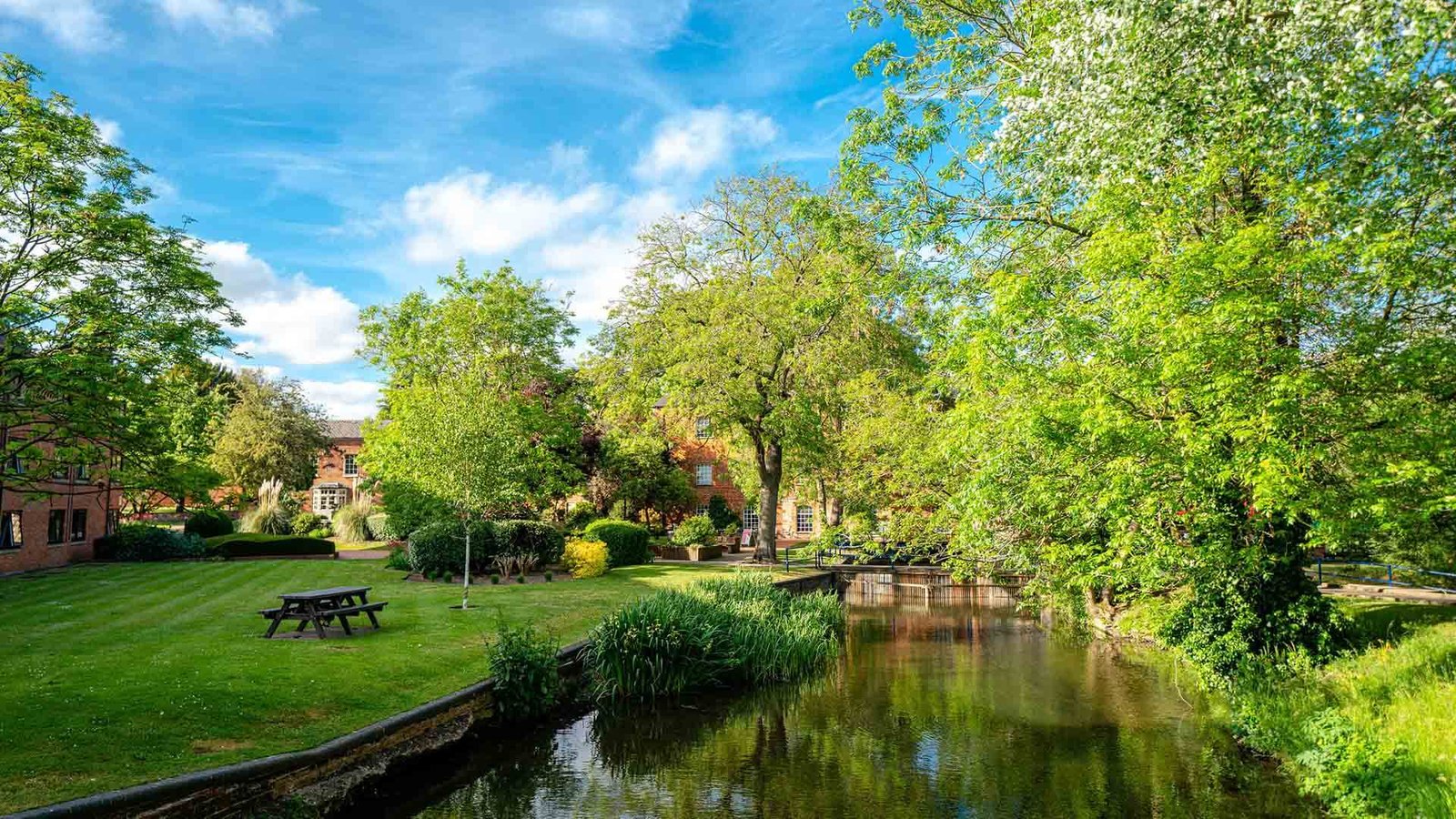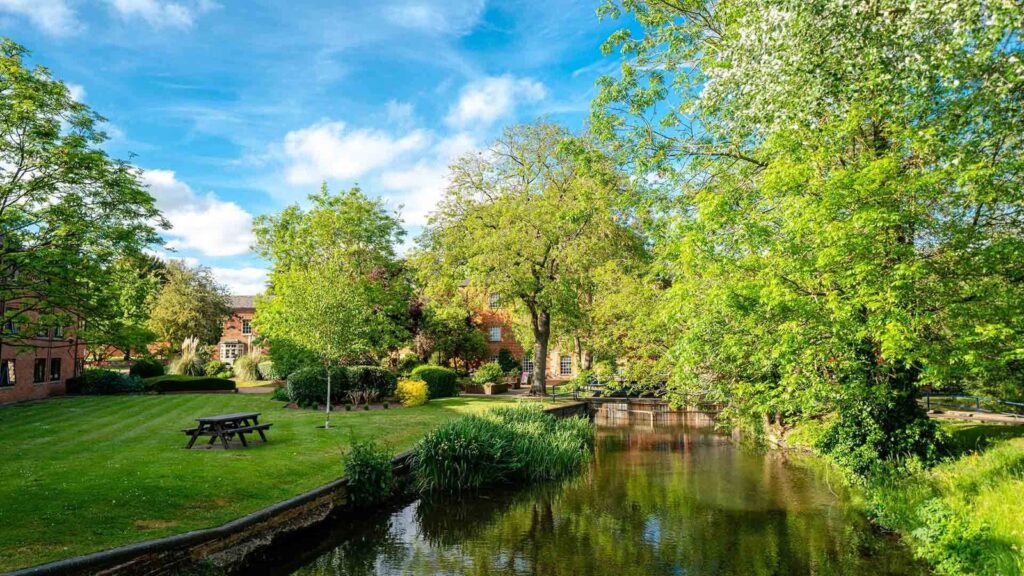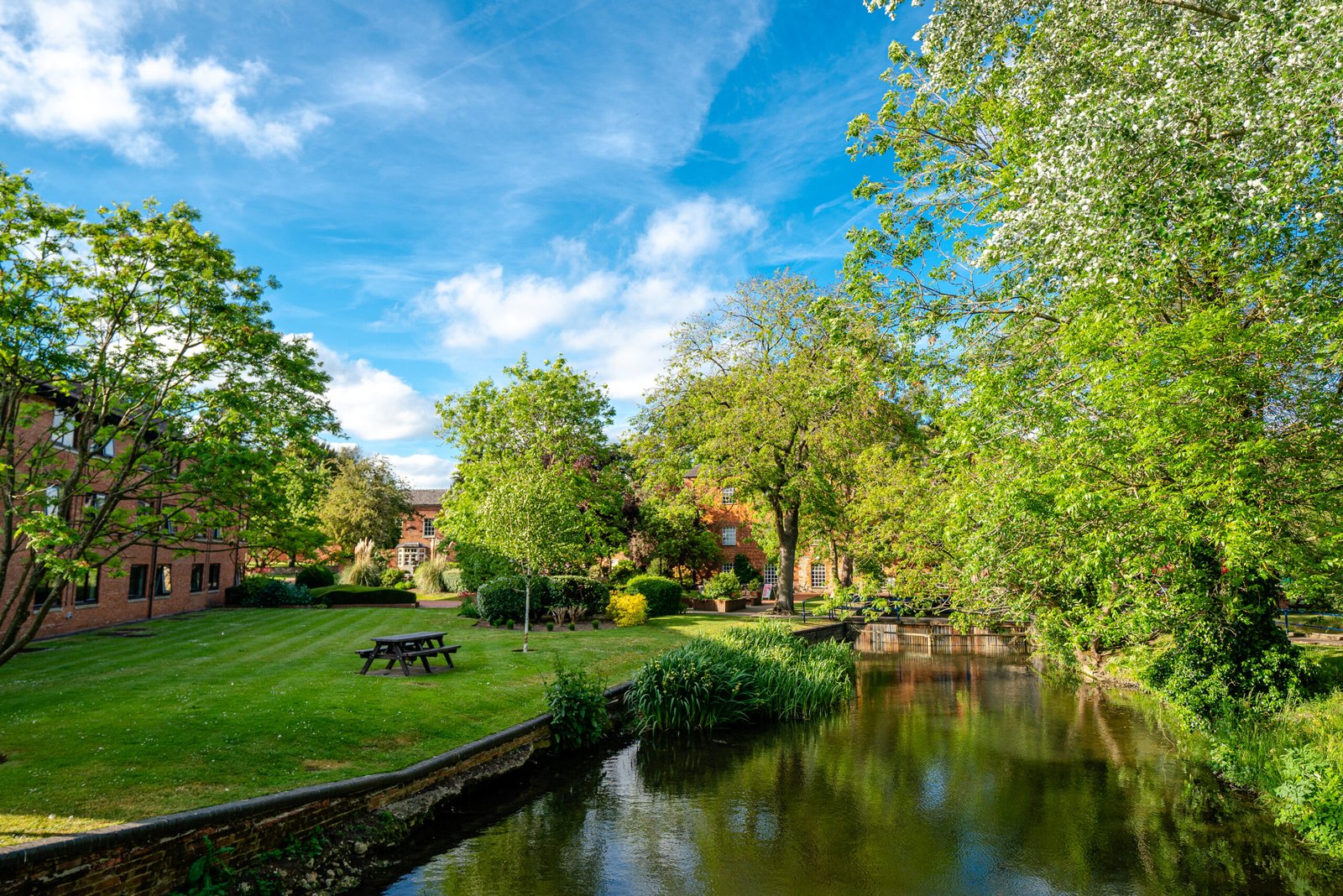Featured Programs
The BA Content Creation, Digital Media and Journalism (2-year degree) comprises of study and practical training in a wide range of aspects of contemporary digital media, journalism and content creation. You will study areas like:
TV and Radio journalism and production
Podcasting
Graphic design and online media
Magazines and digital editorial
Social media
Photography
Advertising, public relations and marketing
The programme is very much hands on, with the emphasis on coursework rather than exams. We believe learning-through-doing is the best way to develop skills and confidence, and to really enjoy your time doing it!
Our programme is ideal for future journalists, bloggers, filmmakers, storytellers, photographers, social media influencers, designers, content creators and marketers.
You will encounter the canon of great authors, from Shakespeare onwards, but you also study themes like Film, Gender, and Empire. In other words, the degree combines traditional and contemporary aspects of the subject. Buckingham’s unique tutorial system makes for highly personalized teaching. If you’d like to try out a tutorial, come along to one of our free taster sessions.
What is Buckingham English?
It is an encounter with the complexity and beauty of great literature
It aids you on your journey to becoming a professional-level writer, able to write fluently and well in any context
Like philosophy, it teaches you to argue and debate your ideas
As a central liberal arts subject, it is a clear space to address the big questions of meaning and existence
We don’t think that formal essays are always the best way of assessing how students understand a subject, so you will find that you have opportunities to write a book review, reportage, poems and short stories, even part of a screenplay. You will learn a number of skills, not least how to write fluently and persuasively. As a result, our graduates go on into a range of careers in media, teaching, publishing, academia, business, and marketing.
BA History is one of the five most popular subjects among UK university students, and with good reason. Having a historical perspective enables people to make sense of today’s rapidly changing world. Employers like it because history teaches you to think for yourself, to work under pressure, and to construct a coherent argument from the evidence. Historical research has never been more exciting than it is today, with the internet making available so many treasures from the archives.
This BA History programme has been carefully designed and fine-tuned by Buckingham’s team of experienced and high-calibre historians. It offers an outline and conceptual modules which concentrate on the period from 1800 to the present day – though we do study some earlier periods too from the 1500s onwards too. It covers, in particular, empires, the rise in political polarisation, World Wars and the shaping of our modern political systems, whilst considering the relationship between ideology and the historical process.
Students progress to study the history of history and to reflect on historical method. In the last part of the course, we study historical documents and texts and develop research and writing skills through a long essay and a dissertation. So the programme not only teaches history; it also teaches you to think historically and to research and write history.
BA History Flexible Honours option
Make your degree as unique as you! If you choose BA History (Flexible Honours) you’ll have the freedom to tailor your History degree to reflect your interests and passions by combining it with a wide range of other subjects taught here at the University. This means that when you graduate you will have a highly personalised degree that will suit you and your aspirations perfectly.
If you choose Flexible Honours you have the freedom to select up to a third of your modules from the whole range of what is taught at the University. This means you can mix and match lots of different subjects with History. At every stage, your Personal Tutor will be on hand to advise and guide your choices.
A BA Philosophy, Politics and Economics degree combines the three important subjects of Philosophy, Politics and Economics. What makes it different to a BA Philosophy, Politics and Economics offered in other universities is its integrated character, with a special focus on explaining how human behaviour shapes economic and political institutions.
In the Philosophy strand, you will take an Introduction to Philosophy module and study the Philosophy of Mind. In addition, there will be more specialised modules in political theory, such as Introduction to Political Theory, and Freedom. And students will receive a grounding in both Scientific Method, and the Philosophy of Social Science. There is also a cross-disciplinary module in Genetics and Society.
The Politics element of the degree focuses on area and country studies, with a particular emphasis on political order and security challenges. Those challenges vary from region to region but typically take the form of political violence (war, terrorism and organised crime), mass migration and economic instability. Students are encouraged to approach these problems from a number of disciplinary perspectives. For example, the study of Latin America would consider the historical, cultural and economic determinants of the region’s politics. The Department is home to the Centre for United Studies and the International Institute for the Study of Cuba.
The Economics element of the PPE programme covers the core areas of Microeconomics and Macroeconomics. There are a range of modules, including (but not limited to: History of Economic Thought; Welfare Economics; Energy Economics; Behavioural Economics). But in addition, there is an emphasis on the interaction between Economics and Politics.
The BA in International Relations provides a rigorous, wide-ranging education into the political structure of the world, and of a range of key countries and regions. Our degree focuses on how global order can be achieved even in the absence of world government. You will be taught about security, the world economy, globalisation, and the conflictual and cooperative engagement between states.
Graduates in International Relations are valued for their breadth of knowledge, critical thinking skills, writing and presentation abilities, and their capacity to work with others in groups. Our degree will equip you for high quality, graduate-level employment, as well as postgraduate study at Buckingham and other highly ranked universities. Buckingham itself is home to three important research centres, the Centre for United Nations Studies, the International Institute for the Study of Cuba, and the Buckingham University Centre for Security and Intelligence Studies (BUCSIS).
Central to the Buckingham experience is small group teaching and a problem-centred approach. Lectures themselves are interactive, with classes normally no larger than 50 students and tutorials – which the forum for group discussion – typically having eight students. Lectures and tutorials are taken by regular staff, who are experts in their field, and not by graduate teaching assistants. And academics have an open-door policy, so if you have problems or simply want to discuss further what has been presented in class you are welcome to do so.
Politics (which includes International Relations) was ranked Second in the UK in the 2022 National Student Survey. Buckingham is also strongly committed to free speech, as evidenced by its consistent awarding by Spiked magazine of “green” (“has not restricted or regulated speech”).
Flexible start and durations
This course is offered as a two-year degree, with the option to start in September or January. Alternatively, the course can be taken as a three-year degree starting in September.
BA Security, Intelligence and Cyber looks at global politics and diplomacy in the 21st century which are increasingly underpinned by questions of security, both as a threat and as policy. Diplomats and decision-makers in government and business increasingly need to understand the complex dynamics of regional and global security, whether that be the complex dynamics of the Middle East; the resurgence of assertive powers in a multi-polar world; or domestic extremist movements, to name but a few. Processes of globalisation have taught us that two further developments are also critical. First, in order to survive and prosper in an uncertain world, all states need good intelligence on threats and adversaries. But how do intelligence capabilities properly interface with the business of government, especially in democratic states where security, privacy and accountability must be carefully balanced? Secondly, the twenty-first century is and will increasingly signify a world where the virtual and the physical become intertwined. The key managers and decision-makers of tomorrow will need to be very much at ease in the cyber realm, recognising both its opportunities and its threats. The intersection of technology, security and politics will become the essence of modern life.
This BA Security, Intelligence and Cyber programme builds upon the success of the Centre of Security and Intelligence Studies at Buckingham (BUCSIS) which has established itself as one of the world leaders in educational provision in this subject area. Both the centre and the university at large offer a very diverse environment. With students coming to Buckingham from over 80 countries, it is an ideal situation to learn about matters of international concern and to discuss them with people from differing cultural backgrounds.
The programme is structured around a core set of modules, and two optional pathways, focusing respectively on politics and diplomacy; and foundational-level computing and cybersecurity.
Students wishing to pursue careers in security, intelligence, diplomacy, foreign affairs or business management will find this programme a unique and attractive foundation.
For those wishing to progress on to a Master’s or research degree, excellent options are available in the Centre for Security and Intelligence Studies (BUCSIS), with discounts for high-performing graduates.
Flexible start and durations
This course is offered as a two-year degree, with the option to start in September or January. Alternatively, the course can be taken as a three-year degree starting in September.
Save time and money at The University of Buckingham
The University of Buckingham was shortlisted for the University of the Year in The Sunday Times Good University Guide, 2024, and Buckingham is different to most universities in the United Kingdom.
Buckingham specialises in accelerated degrees that can save you time and money - getting you into the workplace quicker! You can start your UK adventure by getting ahead with a 2-year degree across an array of subjects, or even explore a fast-tracked 4.5 medicine degree as an option.
You could even continue onto a master’s programme, finishing your undergraduate and postgraduate degrees in three years. Buckingham put you in control of your education too – allowing you to choose a time best for you to start your studies, with January and September start dates available for almost all courses.
Buckingham’s campus is home to over 100 different nationalities which creates a richly diverse community where independent minds thrive. The University of Buckingham aim to embrace your unique qualities and nurture your creativity to help you shape your future. They create a space where you can express yourself, this has seen them ranked 1st for Freedom of Expression in the National Student Survey, 2023 by their own students.
The University of Buckingham keep their class sizes small – so you won’t get lost in the crowd. Campus life involves regular, meaningful interactions with tutors ensuring you are continuously supported throughout your studies. At Buckingham, you’re a name and not just a number and you can benefit from quality teaching from academics who are pioneers in their field - hey will take the time to get to know you, offering tailored feedback, guidance a range of networking opportunities.
It’s no surprise that Buckingham was ranked 2nd for Graduate Prospects (on-track) in the Good University Guide 2023.
University Stats

Entry Requirements
Foundation
Foundation pathways provide a bridge between school study in your home country and undergraduate study at a UK university. These pathways lead to undergraduate programmes in the Schools of Business, Sciences or Humanities. All the courses are taught by subject specialist staff at Buckingham, so you will be part of university life from your first day. Applicants from the US must have obtained a High School Graduation Diploma (HSGD) and at least two Advanced Placement tests (AP) with scores of 3 or above.
Undergraduate
If you are considering enrolling as a full time undergraduate student at The University of Buckingham you need to have a HSGD with a GPA 3.0 plus one of:
A score of 1100+ on the SAT (out of 1600)
Advanced Placement tests (APT) three subjects with a score of 4 or 5
ACTs with a minimum of 26 plus three SATS with minimum scores of 600 in each
One year US university with a GPA 3.0
Combinations of any of the above are also acceptable. The grades quoted above give an indication of a typical offer; at the Admissions Tutor’s discretion, alternative qualifications or gradings may be considered. All applications will be considered individually and work experience and other interdisciplinary achievements are taken into consideration when deciding upon all applications. Applicants may also be offered telephone, Microsoft Team or similar interviews.
Contact University of Buckingham





